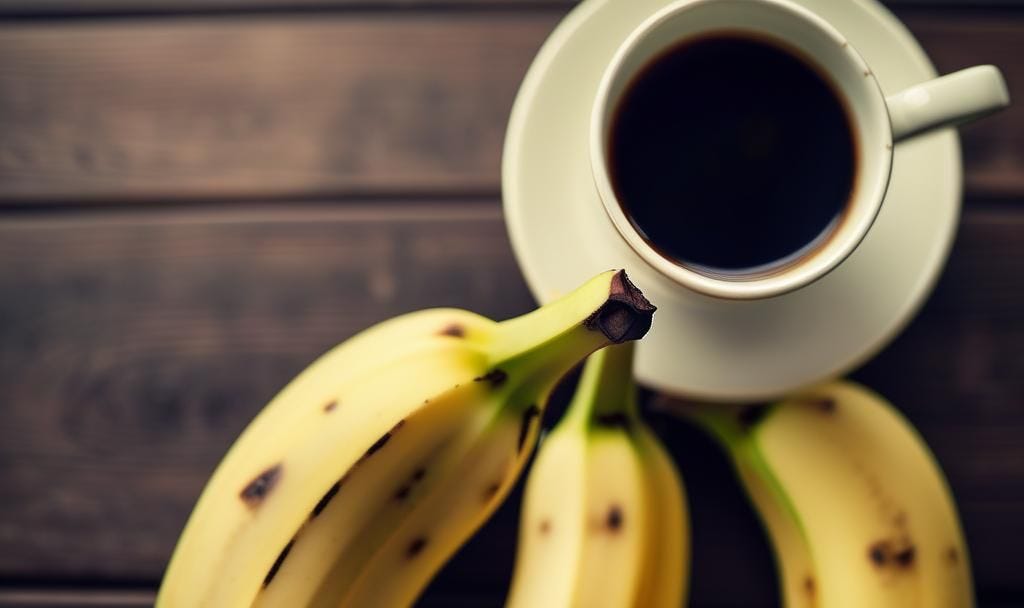I’m a 37-year-old white guy with a family, a job, and a doctorate. How did I get to the point where I fasted until noon, enjoying very little but a diet of bananas and black coffee? And I thought it was all a good idea.
After listening to a podcast on eating disorders, stumbling upon it in my study for psychology, and becoming concerned at the fanatical zeal some of my friends were attaching to ‘keto’, I started to reflect on my diet. Over the space of 24 hours, I ‘woke up’. I had been to the GP to complain of digestion upset and fatigue, ordering a blood test, frustrated and bewildered as to what on earth could have been wrong with me.
Maybe four bananas a day, Dave. Or skip breakfast (and sometimes lunch entirely). Based on internet tomfoolery, I had gradually become subscribed to a nutty diet culture spread by childless beefheads. I had decided on ‘good’ and ‘bad’ foods with fundamentalist rigour.
Fruit was good. White rice was bad. So was bread. Protein shakes were good. Egg whites were good. Egg yolks were bad.
Of course, I was hungry, and every so often, I let my body lapse into enjoying a greasy take-out meal. I felt like I would lose control, shovelling french fries into my mouth while internally reprimanding the sounds of my eating. I was disgusted by myself but continued anyway. The next day would bring regret, and I would stave off having anything too calorically intense for as long as possible.
I was convinced I was disgusting, almost certainly doomed to die before 60, and had a misshapen, unlovable body that was obese.
The ‘wake up time’ felt akin to emerging from a cult. I didn’t know which parts of myself to trust. It’s an unnerving cornerstone of mental illness that is familiar to me in the wake of depressive or anxious episodes. This time, however, the confusion came every couple of hours: what can I eat or drink? What is healthy or unhealthy? I had lost all instinct as to what my body wanted.
I abandoned trying to answer that question, forcing my body to eat moderate-sized meals of whatever I pleased. I de-programmed myself. Now, a fortnight on, I remain confused about what I should be doing about my health, other than focus on just trying to eat without guilt or shame.
A blood test from the doctor helped me. There is, in fact, nothing wrong with me. And my weight is completely average. And I enjoy a moderate level of exercise that’s appropriate for general health.
Still, life-long hatred of my body led me down a dangerous path. That, and the internet, which I’m becoming more convinced is a true mechanism of evil. Having failed at other attempts to quit social media over the last five years, I changed my passwords, signed out of my accounts, and then sent the new passwords to my wife, out of my reach. I do my best to avoid the mirror. I don’t trust myself to look at it.
I wrote just a fortnight ago about how anxiety never ends. While it certainly feels like that, I’m also buoyed by the mid-life wake-up call that allowed me to spot destructive behaviour before I went down a shitty path for too long. While acutely negative messages about my body and diet have been a crucial part of my cognition for the last year or so, my bizarre diet was luckily only a month or so old.
The GP said I could double my antidepressant anytime I wanted. He congratulated me on reaching out to my psychologist, whose next available appointment is in February 2025.
In the meantime I shall do my best to eat and be merry.




It's easy to be more mindful of what you eat when you have a gut disease ... I am a coeliac, and I am grateful that this is one of the only disorders one can only fix with diet, so I have learned a lot about making my own stuff from scratch to understand how food works in the biome. The best advice I ever got was this: eat 30 different plant-based foods each week ... now that sounds like a lot, but this includes the perennial favourite: toast and tea! Quite seriously, it stopped me thinking about how much I eat or what I felt worked, and it made me become a bit more adventurous. Combining stuff that is easy and you can use several times was key: pea mash is a great example. Cook peas, mash them, add parsley and basil, garlic, salt, pepper and a bit of parmesan cheese with a lot of olive oil (yes a plant based food!!) and there you have a side for an egg or a chunk of meet, a spread on toast under an egg, or something to dip a cracker in with cheese ... I try to find a lot of these little staples that stay in the fridge and are yummy and always there with a handful of nuts and olives... it works. Not sure if I make my 30 each week, but give it a go ... have frozen fruit in the freezer to keep the fruit flies away ... your biome will thank you for it. There are so many diseases, including mental illnesses, that can be reduced by eating a wide variety of plant-based foods ... and I LOVE my meat, don't get me wrong ... this is in addition to, if you wish!